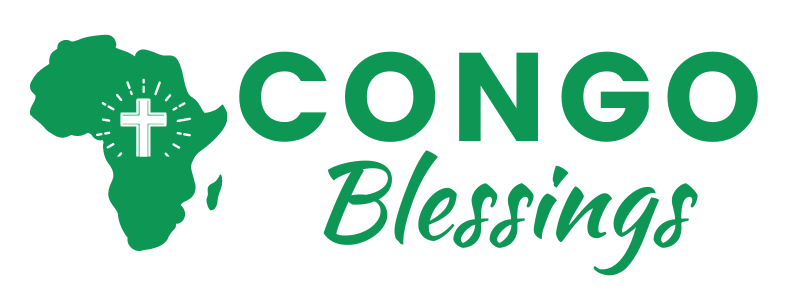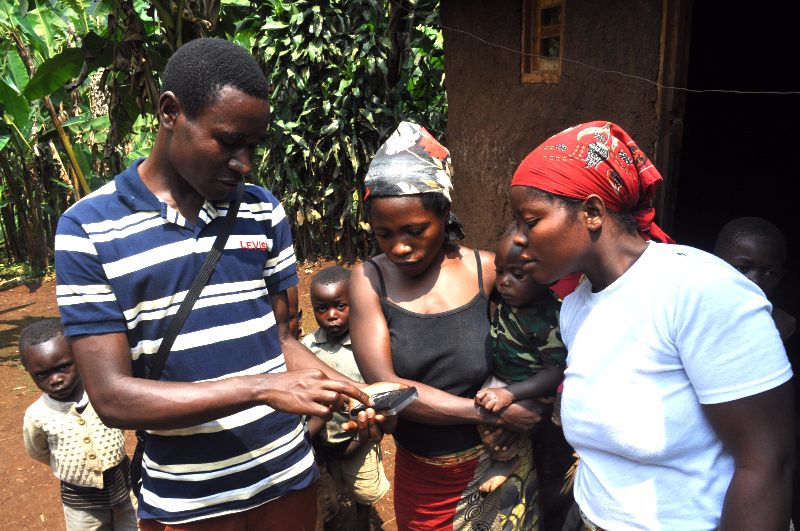“Follow Me” in the DR Congo
A Short Story: Love Your Neighbor
God’s Personal and Powerful Provision for His People
|
I met Solomon on my second trip in 2009 in a way that only God could have arranged. He was 19 years old. He told me he wanted to study philosophy at a university. I was shocked.
I was so focused on the physical poverty in Bukavu, and yet God had arranged an introduction to someone who had never left the Congo and somehow decided he wanted to study philosophy. Why? And how did philosophy get on his radar? After all, philosophy did not seem very practical in a place where people were routinely hungry. I have answers to those questions now. But first, the rest of the story — a story of loving our “neighbor” — Solomon.
Beginning with the fifth trip in 2012, Solomon stayed in the hotel with us and ate with us — serving as our interpreter and cultural expert and becoming our friend. Before meeting us, Solomon had never eaten in a restaurant much less stayed in a hotel. God used us to begin to enlarge Solomon’s world as God used Solomon to begin to enlarge our minds and hearts.
Soon, Solomon started blogging about life in the Congo. He also found a professor who would teach him philosophy. God had answered his prayers. And there was more to come.
We learned that Solomon has great insights into his community — things that are good and things that need to change. We learned that Solomon is kind and loves people.
Over the last few years, we helped Solomon in his writing by giving him a computer. (A hearty thank you to those of you who have given us computers!) We also gave him a Kindle so that he could access books. There are no book stores in Bukavu. The colleges there do have libraries, but the libraries have no books.
Seeing a post on Facebook, Solomon applied to be a journalist for an NGO (non governmental organization). They accepted him and paid him with a new laptop and a camera. They assigned an editor to him to help him with his blog posts. They taught him how to use Twitter. Social media — being used for good. And another provision from God.
Facebook is an interesting topic with Solomon. He wishes people in the Congo would use it for more than pictures. He wants people to discuss ideas. That sentiment fits his enjoyment of philosophy … and wanting to change a country.
Many of you have helped Solomon by signing up to “follow” his blog and sharing his blog posts on Facebook. I cannot tell you how much those small actions encourage him and inspire him to persevere. It is very difficult to live in a community that you want to change. Being different, living different is challenging and lonely. (If you have not signed up to follow Solomon’s blog and would like to do so, please click here.)
We helped solomon build a website to develop a business providing services to people traveling to Congo, Rwanda and Burundi. He got his first client recently. You can see his site here. We loved our neighbor, Solomon, and together, we watched God provide.
As God provided for Solomon, Solomon provided for his family. Solomon’s father became chronically ill and could no longer provide for the family. Through Solomon’s work with us, he was able to pay some of his brother’s tuition for medical school when his father could no longer provide.
Through Solomon’s blog, he met someone in Australia affiliated with an NGO working in Bukavu. The NGO made a significant loan to Solomon’s mother who has a business selling fabric. She can now purchase fabric in larger quantities at lower prices. People loving their neighbor. Another provision from God.
Through the blog, Solomon also met someone in the US who wants to help him use crowd funding on the internet. Shrewdly, she asked him to come up with an idea to seek crowd funding (as opposed to giving him the idea). He wants to raise money to help women who cannot pay the hospital fees when they give birth. In the Congo, these women are forced to stay at the hospital until someone finds the money. (I was telling this story to a friend who said, “Why does the hospital want to continue to feed them?” I laughed. In the Congo, hospitals do not supply food or much nursing care. If you need those things, your family must provide.) In many Congolese families, women are the ones who keep the family supplied with water and food. Being forced to stay at the hospital can have significant ripple effects on the other children. By the way, the fees for a normal birth are $10. If you want pain medicine, it costs $5. A C section costs $150. Infant and maternal mortality are very high. We are learning about a different world.
We want to expose Solomon to the rest of the world. He did not have a passport which had prevented him from applying to attend various leadership conferences. We agreed to split the cost of the passport with him. The passport cost $180. He paid his half with the money that he had been earning. Just a few months after receiving his passport, Solomon told me that a group wanted him to go to a conference in Uganda and serve as an interpreter. In a very excited voice, he told me that he would get to fly on an airplane for the first time. Then, with much appreciation, he told me that he would not have been able to accept the assignment if he did not have the passport.
I imagine that Solomon lacked a passport not just because of the money. I suspect he would feel foolish for spending money on a passport. What hope did he have of leaving the country? So while our money was helpful in obtaining a passport, our encouragement was essential. It is lonely being different.
Praise God for His provision for Solomon. What a blessing Solomon has been to his family! Please join me in praying that Solomon would also be a blessing to his country.
The story of Solomon and those of us who have visited Bukavu is a story of God weaving together the lives of His people — to their mutual benefit. God knew that we needed someone like Solomon to help us be effective in the Congo. God knew that we needed to hear first hand from a Congolese the necessity of ideas and of truth in dealing with the ever present physical poverty.
The story of Solomon and us is a story of loving our neighbors. In this case, the neighbors can reside thousands of miles apart, thanks to technology. Thanks for helping make more love possible.
To God by the Glory!
For the team,
Greg
P.S. Pat (my wife) tells me that I have not communicated the depth of misery and injustice in Solomon’s world — which makes his life all the more remarkable. Simply put, we do not have reference points to understand. With more context, you will see an even grander picture of the grace of God and the courage of Solomon. The best way to get that context is to read his blog here.
By the way, I hope you see that NOTHING that we did in loving our neighbor Solomon was difficult. In fact, I suspect you would have done exactly what we did if you had been in our circumstances — which makes you perfectly equipped to love a neighbor in a place like the Congo!


